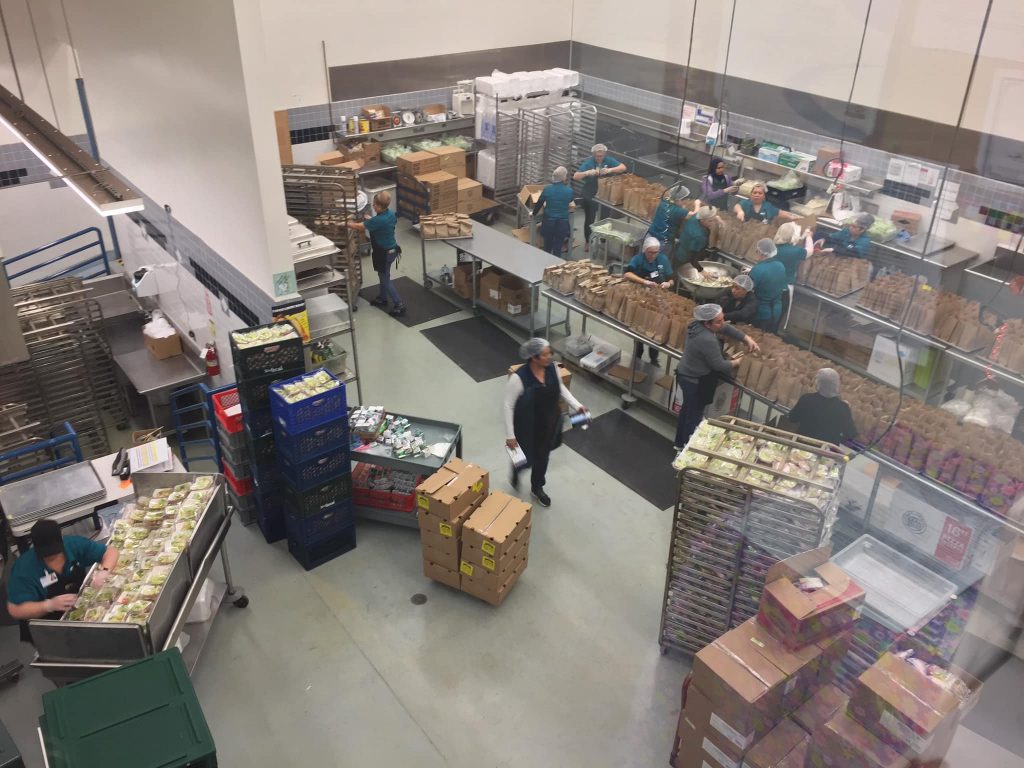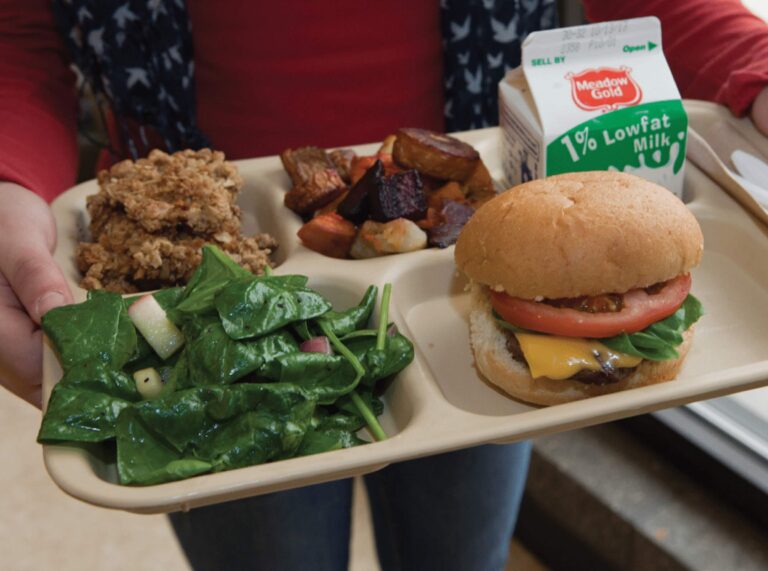Strengthening School Nutrition in the Face of COVID-19
When school cafeterias reopen, we must ensure school nutrition staff are equipped with the tools they need to serve a variety of healthy choices.
Join our corps! Applications for 2026-2027 are now open. Apply by March 30.
When school cafeterias reopen, we must ensure school nutrition staff are equipped with the tools they need to serve a variety of healthy choices.

By Kumar Chandran and Karen Spangler for Spotlight on Poverty
The COVID-19 pandemic has brought to light what we’ve long known to be true: school nutrition is essential to kids’ health and well-being. In the United States, 30 million kids rely on school meals every day. That means when schools close, 30 million kids’ primary source of nourishment is jeopardized. This loss is felt most by low-income families and communities of color, who are also likeliest to feel the impacts of COVID-19 in other devastating ways.
School nutrition professionals have mobilized in unprecedented ways, joining first responders on the front lines and feeding thousands of kids in the face of school closures. In one California school district, free daily meals are available for pick-up to all students, regardless of whether they are enrolled in the school meals program. In a Kentucky school district, school nutrition staff have made meals available for pickup at 58 different locations.
But while communities are rallying to make sure kids stay nourished and healthy, the USDA is moving forward with wide-ranging changes that could jeopardize ten years of progress toward healthier school meals. The aim of the proposal—to simplify administration of school food programs—is admirable. But in addition to cutting down paperwork, the new rule would allow fewer non-starchy vegetables, and add more exemptions for unhealthy snack food.
When the USDA proposed this set of changes to school nutrition standards in January, we knew it was important to take time to hear directly from some of our school nutrition partners and other stakeholders to learn how these modifications would impact their operations and the kids they serve. The proposed changes are complex, and we’ve shared our stance on various components of the proposed rules.
Fundamentally though, our organizations believe that in the course of any changes the USDA must uphold strong nutrition standards and build on the progress schools across the country have made to serve healthy school meals. In particular, we are concerned with aspects of the proposal that would reduce vegetable variety and allow schools to more freedom to sell less healthy offerings directly to students. School food service professionals who are working overtime to meet emergency needs deserve financial and logistical support to get healthy food to kids, not rollbacks that risk that progress.
We know that students with healthier diets perform better in school and go on to lead healthier lives. Healthy, nourishing meals are key to kids’ wellbeing in and out of school—especially so during times of crisis, like the one we’re facing now.
Right now, in response to this crisis, school nutrition professionals are mobilizing staff and volunteers, creating new menus, conducting community outreach, and developing new systems for distribution—often without clear guidance or notice about changing rules and regulations. None of this heroic work is possible without meaningful investments in school nutrition—including policies that empower school nutrition staff to serve healthy, delicious meals that nourish kids’ bodies and minds.
When school cafeterias reopen, we must ensure school nutrition staff are equipped with the tools they need to serve a variety of healthy choices for our students. The USDA’s decision will play a critical role in making that future a reality. And we can make a difference by telling the agency how these changes will affect kids—and the thousands of people who serve them every day.
The USDA is accepting public comments on this proposal until April 22. The agency is required to consider the feedback it receives before issuing a final rule, so your comments will make a difference. Visit FoodCorps’ Action Center to share your thoughts now in just a few clicks.
Kumar Chandran is Policy Director of FoodCorps and Karen Spangler is Policy Director of the National Farm to School Network. Together with communities, FoodCorps serves to connect kids to healthy food in school. National Farm to School Network works to ensure equitable access to local food and nutrition education to improve children’s health, strengthen family farms, and cultivate vibrant communities.

3 Reasons We Need School Meals for All

Mindful Tasting: Eating with All 5 Senses

Our 2025 Child Nutrition Policy Year in Review